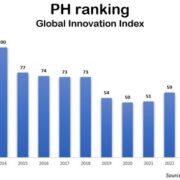Despite the repatriation of overseas Filipino workers (OFWs) due to the ongoing onslaught of the COVID-19 global pandemic, Bangko Sentral ng Pilipinas (BSP) Governor Benjamin Diokno remained optimistic on the outlook of the growth of remittances for the remainder of 2020.
In a virtual roundtable at Lido held last Wednesday on May 27, Diokno said given the impact of the pandemic, the slower inflows of remittances back in February was understandable.
Further, Diokno said inflows from overseas Filipino workers overseas has maintained steady growth for years now and has been a key growth driver for consumption expenditures in the Philippines.
Diokno added remittance inflows could however contract this year because some OFWs have lost their jobs due to economic disruptions in host countries, but he discounts the possibility of a contraction, which the World Bank (WB) projects could be 20% globally this year and 13% for the Asia Pacific.
“It is important to point out that crisis or no crises, Filipinos abroad continue to send remittances to their families at home. It would appear that OFW remittances have an altruistic character. Furthermore, the adverse impact of Covid-19 (coronavirus disease 2019) on remittances may be temporary,” he said.
BSP data show that cash remittances last February grew by 2.5% year-on-year to USD5.566 billion over year-ago’s USD2.3 billion.
In the first two months this year, cash remittances went up by 4.6%t, slower than the 6.6% in the previous month, to USD5.006 billion.
Remittances, which accounts for about 9% of the economy’s annual output, are aimed to expand by 2% this year, a downward revision from the 3% target earlier.
Diokno said the impact of the drop of remittance inflows on the economy can be countered by the expected increase of inflows to the business process outsourcing (BPO) sector due to the need for digitalization.
Diokno also adding that the government’s infrastructure program may be tapped to employ OFWs from the Middle East who are into the construction sector.
Another employment option for workers is the need for contact tracers which the government will activate to aid the COVID-19 response.
Diokno said that while there are sectors that will be hurt by the crisis, opportunities also abound like the need for more medical workers and digitally-knowledgeable individuals.
“The world is really globalizing and, I think, because of our advantage, demographic advantage, we can develop our people,” he said, adding that the median age of Filipinos is 25 years old.
Diokno said most of these people are tech-savvy which is highly demanded around the world.
“Isn’t that nice that the quality of our exports will increase? And we will, as a result, will continue to benefit from overseas Filipino remittances,” he added.





